Your immune system serves as your body’s primary defense against harmful pathogens, from viruses to bacteria and fungi. This intricate network of organs, cells, and proteins not only protects you from illness but also repairs damage and adapts to future threats. While factors like exercise and sleep are essential for maintaining a robust immune system, your diet plays an equally significant role.
Certain nutrient-rich foods can help strengthen your immune defenses and support overall health. Let’s explore 10 of the best foods to incorporate into your diet, along with the science behind their immune-boosting properties.
1. Citrus Fruits

Citrus fruits are celebrated for their high vitamin C content, a vital nutrient for immune health. Vitamin C acts as a powerful antioxidant, helping to combat free radicals and reduce the risk of chronic diseases. Since your body doesn’t produce or store vitamin C, regular consumption is necessary.
Some examples of citrus fruits and their vitamin C content include:
- Oranges: 82.7 mg per fruit
- Tangerines: 32 mg per fruit
- Limes: 19.5 mg per fruit
- Grapefruit: 39.3 mg per half fruit
Whether eaten fresh or as a juice splash in your meals, citrus fruits are a refreshing way to boost your vitamin C intake.
2. Red Bell Peppers
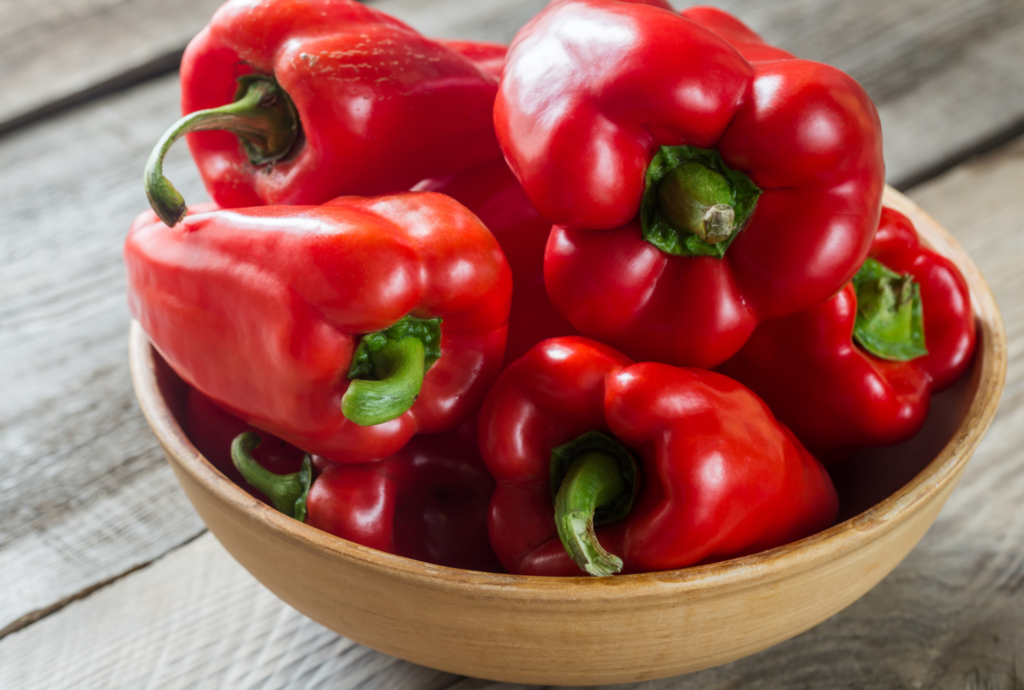
Did you know red bell peppers contain more vitamin C than most citrus fruits? One large red bell pepper provides 210 mg of vitamin C—more than double your daily requirement.
In addition to vitamin C, red bell peppers are rich in beta-carotene, an antioxidant that supports eye health, skin health, and immune function. Enjoy them raw for a crunchy snack or incorporate them into stir-fries, salads, and roasted dishes.
3. Yogurt
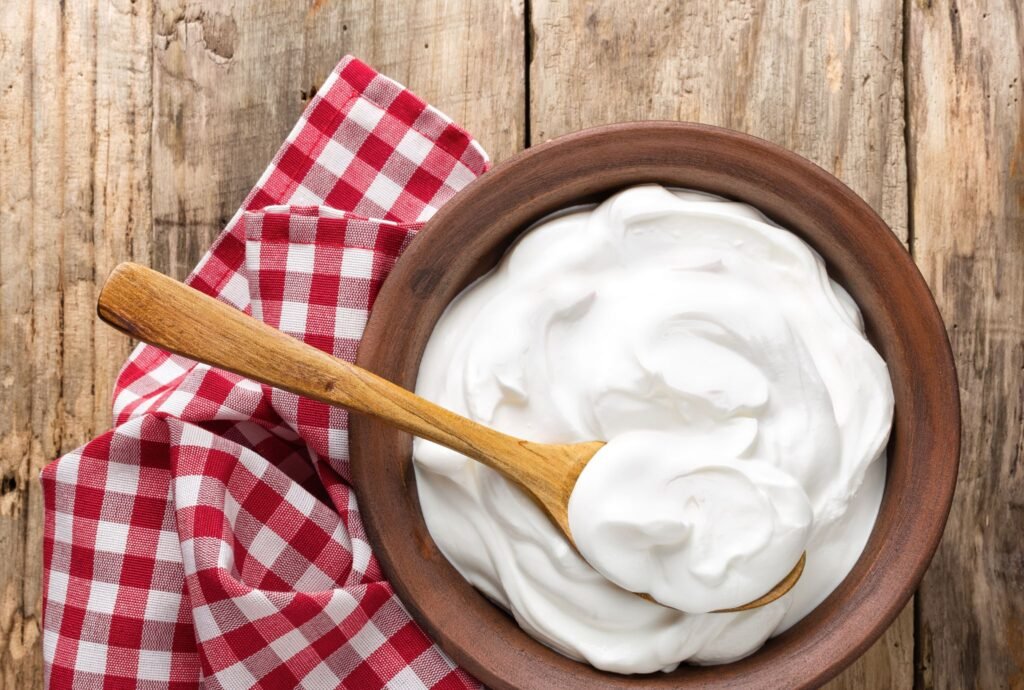
Yogurt is an excellent source of probiotics—live bacteria that promote gut health. A healthy gut microbiome is closely linked to immune function, as much of the immune system resides in the gastrointestinal tract.
Greek yogurt is particularly beneficial due to its high protein content and diverse bacterial strains. Enjoy it as a standalone snack, layer it with berries and granola for a parfait, or use it in soups, smoothies, and salad dressings.
4. Fatty Fish

Fatty fish like salmon and mackerel are rich in vitamin D, which plays a critical role in immune regulation. A 3-ounce serving of cooked salmon provides 97% of the recommended daily intake of vitamin D.
Fatty fish are also packed with omega-3 fatty acids, which have anti-inflammatory properties that support heart, brain, and immune health. Incorporate these nutrient-dense fish into your meals for a flavorful and healthful boost.
5. Poultry

Poultry, such as chicken and turkey, is a great source of vitamin B6, essential for producing infection-fighting T-cells and reducing inflammation.
A 4-ounce serving of chicken breast provides more than half of the recommended daily intake of vitamin B6. Add grilled, roasted, or smoked poultry to your meals for a delicious and immune-supportive protein source.
6. Leafy Greens
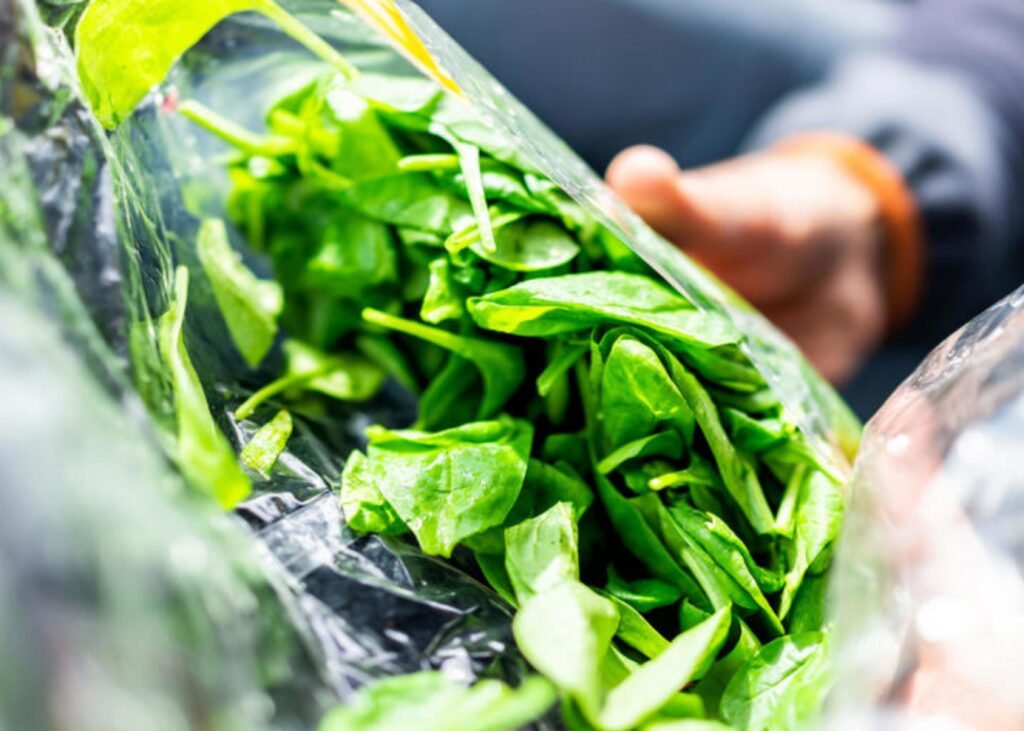
Leafy greens like spinach, kale, and Swiss chard are nutrient powerhouses. They contain antioxidants and fiber that reduce inflammation and oxidative damage in the body.
To maximize their health benefits, steam leafy greens rather than boiling them. Use them in salads, stir-fries, soups, or as a side dish to add a nutrient-packed element to your meals.
7. Nuts
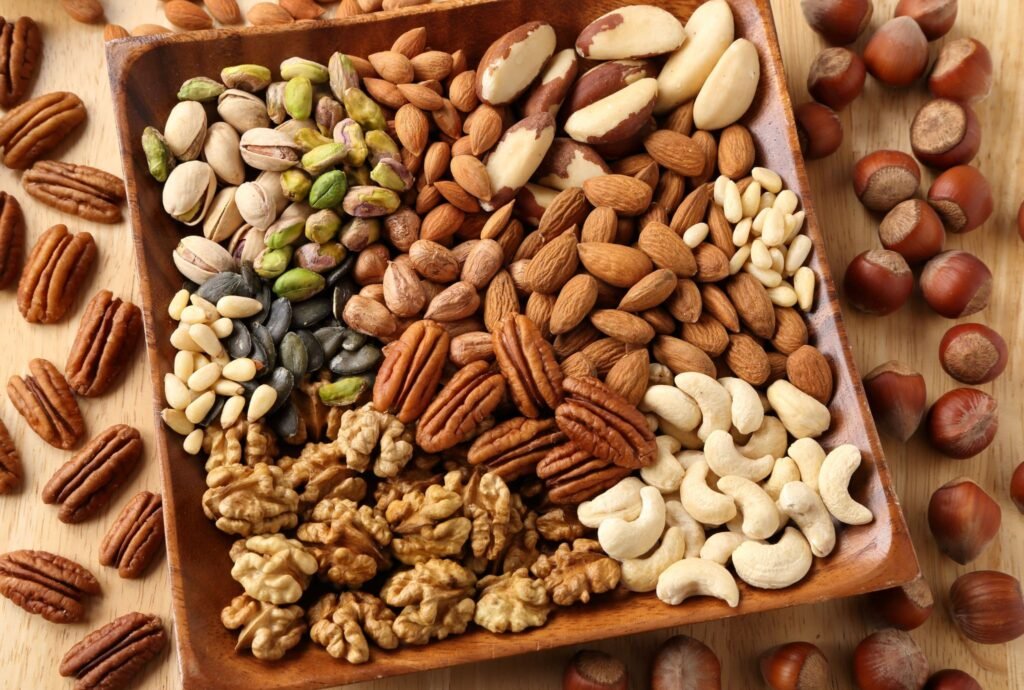
Nuts, such as almonds, cashews, and pine nuts, are convenient sources of zinc—a mineral crucial for regulating immune responses.
For example:
- 1 ounce of cashews: 15% of the recommended daily zinc intake
- 1 ounce of almonds: 8% of the recommended daily intake
Snack on nuts, add them to oatmeal, or sprinkle them on salads and grain dishes for a nutritious crunch.
8. Ginger
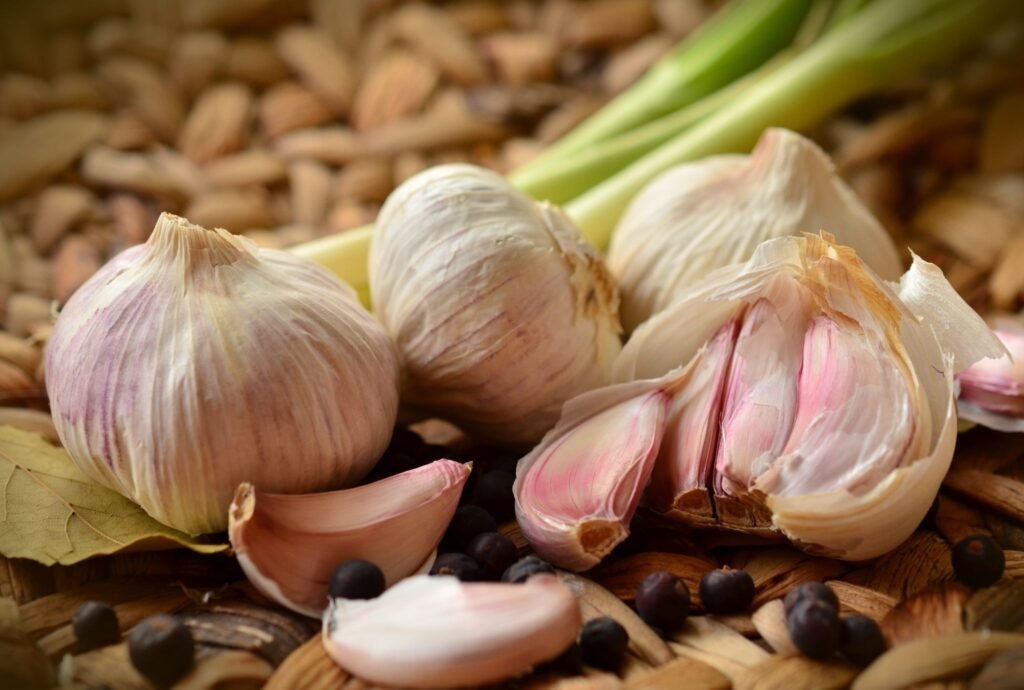
Ginger is known for its anti-inflammatory and antioxidant properties, making it a fantastic addition to your diet for immune support. Research shows ginger can block pro-inflammatory cytokines and reduce oxidative stress.
Add fresh ginger to teas, stir-fries, soups, and marinades, or use it in powdered form for a warm and spicy flavor.
9. Turmeric
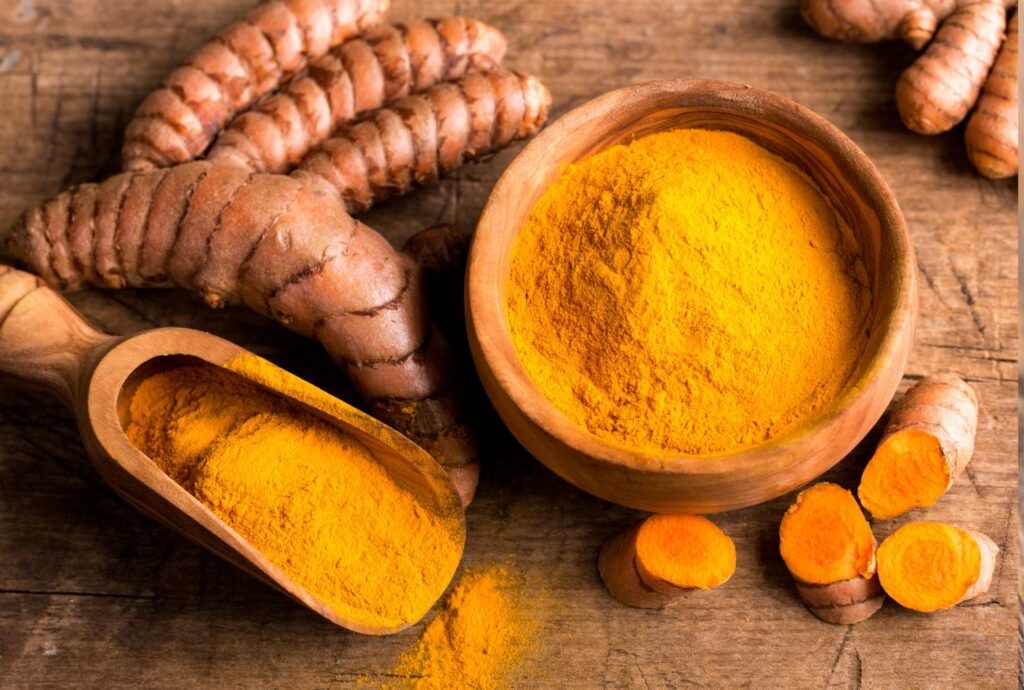
Turmeric contains curcumin, a compound known for its antioxidant, anti-inflammatory, and immune-enhancing properties. Curcumin supports key immune cells, such as macrophages, and helps suppress inflammation.
Incorporate turmeric into curries, soups, stews, or teas for both flavor and health benefits. Pair it with black pepper to enhance curcumin absorption.
10. Garlic
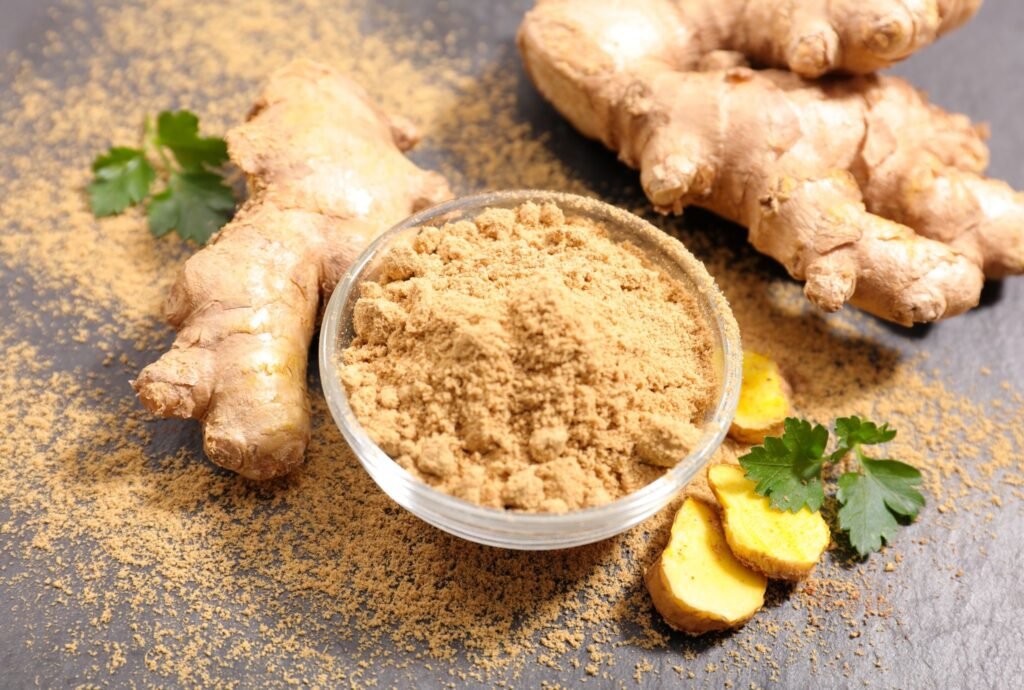
Garlic has long been celebrated for its medicinal properties. Its biologically active compounds support brain, heart, and gut health while boosting immune function.
Use garlic to flavor savory dishes like pasta, stir-fries, sauces, and dips for both its taste and immune-boosting properties.
Additional Tips to Support Immunity
While diet plays a crucial role in immune health, a holistic approach is key. Here are other ways to enhance your immune system:
- Sleep: Aim for at least 7 hours per night to allow your body to repair and recharge.
- Exercise: Engage in 150 minutes of moderate-intensity exercise weekly to reduce stress and improve immune function.
- Manage Stress: Incorporate mindfulness practices, such as yoga or meditation, to lower stress levels that can impair immunity.
By incorporating these immune-boosting foods into your diet and embracing a healthy lifestyle, you can strengthen your body’s natural defenses and promote long-term wellness.



